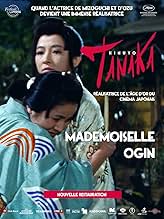True love has a value beyond all creeds, beyond the material, it is a way of life worth all sacrifice. Folly consists of forsaking love. Messages such as these characterise this film, where the aether is wispy and the cold is grasping, such are the elevations of sentiment. That the story is an unhappy one is undeniable, but the unmannered beauty, the seeming effortlessness of the composition and the sincerity of the film-makers and characters, all make encouraging companions. The costume work here is staggering, clothing here has nothing to do with practicality, garments instead become expressions of sheer affection for the characters wearing them, reflective of their inner wonders.
The movie takes place at the end of the 16th century, prior to the establishment of a unified Japan. Although the persecution of Christianity at the time is a major driver of the plot, the movie is not about Christianity, one of our lovers, Ukon, is a Christian more in the sense that he loves God, the movie has no real scriptural sensibility. Director Tanaka wonders, as Hardy did, why young men often prioritise devotion to ideas over devotion to others. Arima Ineko's performance as steadfast lover Gin is particularly strong.
The central metaphor of the tea ceremony and its differing interpretations, may have fallen flat with some viewers, an oaf in the auditorium at my viewing guffawed at tea-master Rikyu's comparison between the qualities of the tea ceremony and love. Underappreciation of female perspective, and the uphill struggle of any story with spilled love confronted with a casual audience, could be other contributors to the underfame of this one. I certainly adored the movie, and the other movie I have seen from Kinuyo Tanaka also endeared itself to me indelibly (Forever a Woman).































